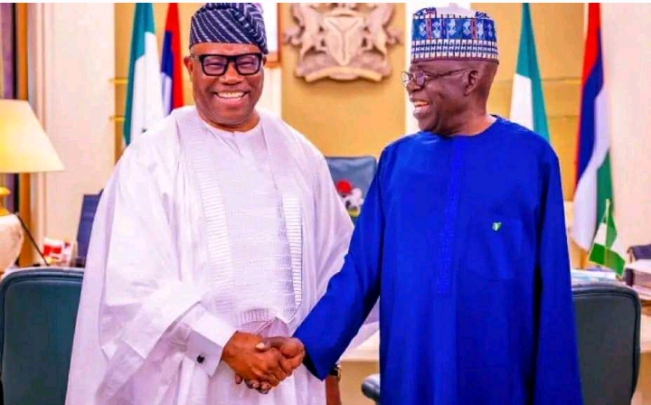Bribery Scandal Shakes Parliament Over Tinubu’s Emergency Rule in Rivers
A serious bribery scandal has engulfed the parliament, exposing eleven lawmakers—seven senators and four representatives—who confirmed they were offered up to $25,000 each to endorse President Bola Tinubu’s invocation of Section 305 of the Nigerian Constitution. This controversial move seeks to oust Governor Simi Fubara and all state legislators, effectively imposing military rule in Rivers State.

“Members are hesitant to even attend parliament,” one lawmaker asserted to The Gazette on Thursday morning. “Many, particularly those from Borno, have received direct instructions from their governors to oppose the emergency rule in Rivers.”
During the executive session of the House on Thursday morning, only 113 out of 360 members showed up, failing to meet the required quorum of 120 members necessary for a vote.
In a desperate bid to avert impending defeat, sources indicate that loyalists of the president, including Senate President Godswill Akpabio, actively discussed using cash bribes to sway votes. Interviews with 14 lawmakers across both chambers revealed that 11 confirmed receiving offers. Seven lawmakers reported being paid $25,000 each between Wednesday night and Thursday morning, while four received $15,000 during the same timeframe. Two lawmakers were approached but wisely rejected the offers.
Notably, Senator Seriake Dickson, a vocal critic from the opposition Peoples Democratic Party, stated he received no such offers, highlighting the divide among lawmakers on this issue.
The bribery was reportedly executed at various locations in Abuja, yet the lawmakers could not determine if the payments came from a single source. Offers began surfacing at 6:15 p.m. on Wednesday, as presidential aides and legislative allies scrambled to secure the necessary votes to ratify the emergency rule by Thursday afternoon.
Tinubu declared the emergency on Tuesday night, citing rising political tensions between Governor Fubara and lawmakers loyal to Nyesom Wike. He promptly installed retired naval chief Ibok-Etuk Ekwe-Ibas to govern the state for six months.
This announcement has ignited widespread outrage, with legal experts and citizens denouncing it as unconstitutional and a direct threat to national stability.
Under the Constitution, the president has a mere 48 hours to obtain parliamentary approval for the proclamation to remain effective. However, the law does not explicitly endow the president with the authority to dissolve an elected state government.
Wednesday presented the first opportunity for lawmakers to ratify this unprecedented proclamation, yet attendance was dismal. In the House of Representatives, only 80 out of 360 members attended, far below the required 120 for a simple quorum.
For the emergency rule to be ratified, the Constitution mandates approval from two-thirds of lawmakers—240 House members and 73 out of 109 senators. The stakes couldn’t be higher as this scandal unfolds, challenging the integrity of Nigerian governance.
COMMENTS